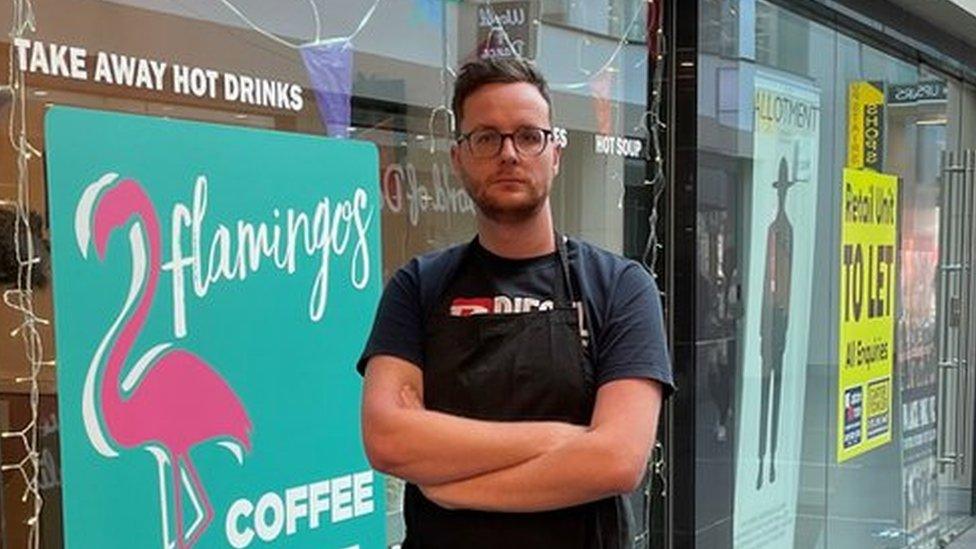Scottish hospitality firms in energy costs plea to Liz Truss
- Published
- comments
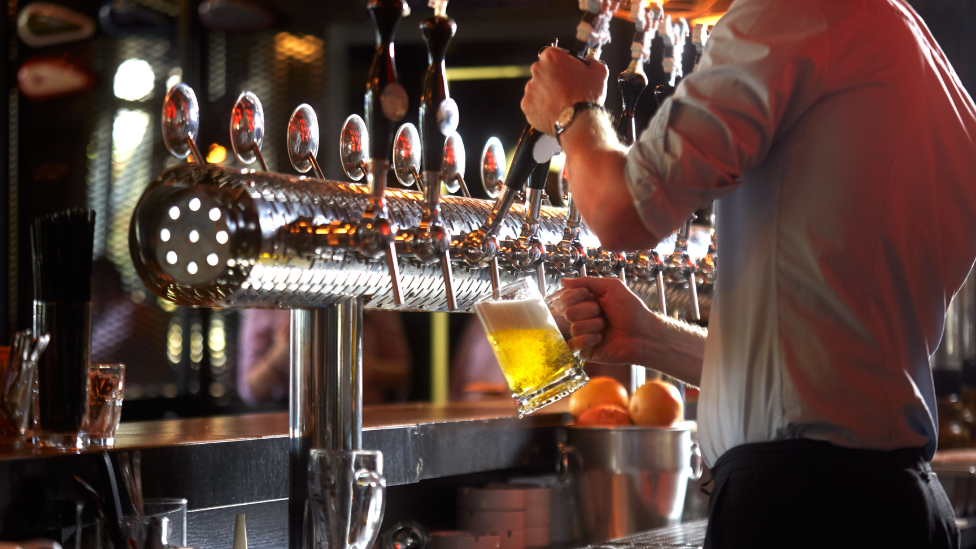
Owners of hospitality businesses have warned they face going under without adequate government support
More than half of Scotland's hospitality businesses could close without immediate action on soaring energy costs, the new prime minister has been warned.
With bills rising by up to 400%, bosses say the industry will be decimated without a pandemic-style response.
Liz Truss made tackling the cost-of-living crisis one of her top priorities after entering Number 10.
She is set to announce a new package of measures on Thursday.
While household bills are limited by Ofgem's price cap, there is no such ceiling for businesses.
Thursday's announcement is expected to include financial support for households, which are facing an 80% rise in October.
The prime minister has pledged support for struggling firms, though the details remain unclear.
Owners of Scottish hospitality businesses told the BBC that only drastic action would prevent mass closures and lay-offs.
Paul Banham, operations director of the Singl-end cafe and bakehouses in Glasgow, said one of his sites which used to pay monthly energy bills of around £2000 was now paying £9000 for electricity alone.
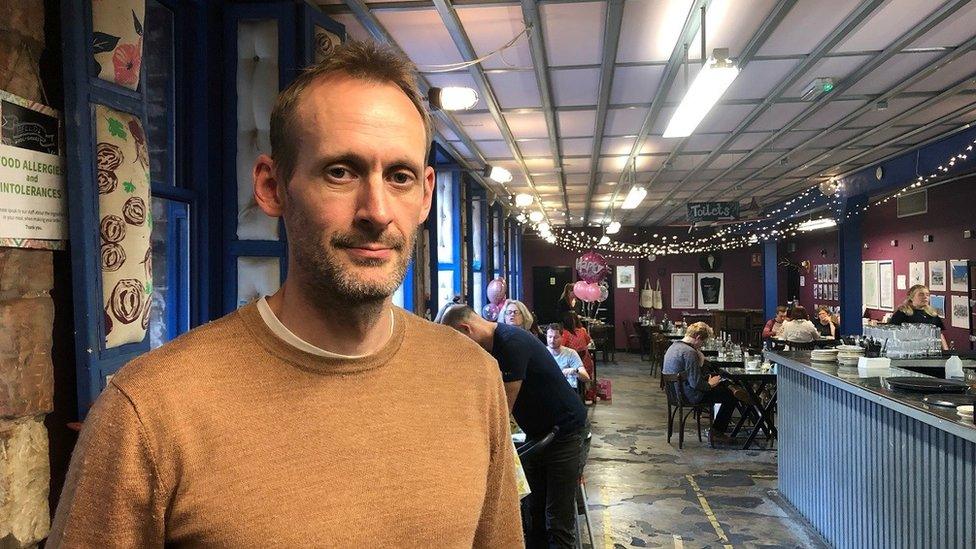
Hospitality boss Paul Banham is calling for VAT reductions and a price freeze
He called for a response akin to the one seen during the pandemic.
A VAT reduction and an energy price cap for businesses would be a "bare minimum" to keep firms afloat, Mr Banham said.
He added: "Honestly, I think if the industry doesn't get government help you're talking about half of it closing down within the next six months.
"That's the honest answer. You can talk about half of the businesses but that's half of the jobs are gone. And that's people's lives and livelihoods.
"If it keep continuing, I don't see how any hospitality business will be unaffected. The majority I would say would have to close."
The hospitality boss compared paying energy bills to death and taxes.
"You know you're going to pay it, you just don't expect to be paying a new mortgage by paying your gas and electric every month," he said.
Billy Gold, owner of the Heilen Jessie bar in Glasgow's east end, also called on Westminster to deliver immediate relief.
Having "scraped" through the pandemic, his business faces going into the red for the first time in 35 years.
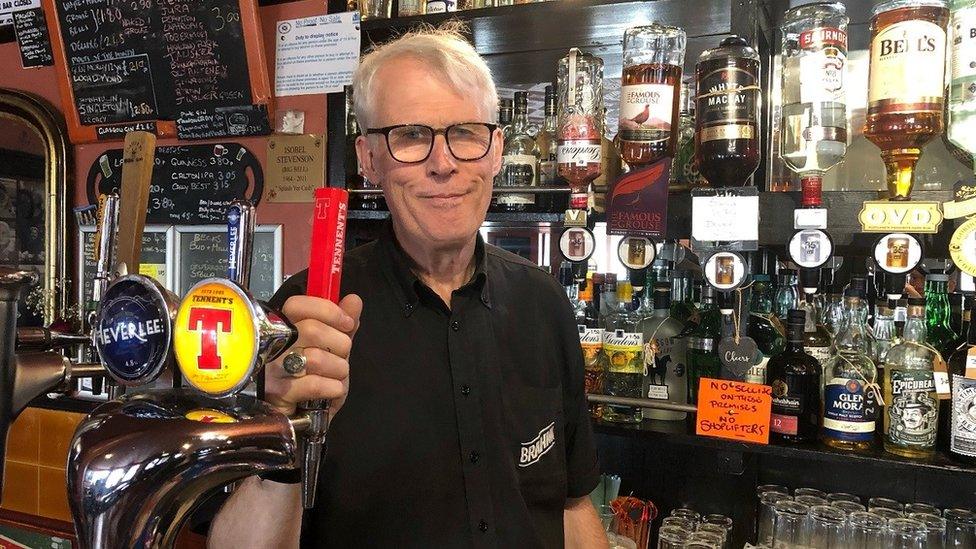
Pub owner Billy Gold says businesses are already in crisis
"We're already in dire straits with what we're paying just now," Mr Gold said. "Any further increase would make things totally untenable.
"I don't like even saying things like this out loud, but if we don't get help we can't continue."
The pub, which employs 11 local people, was set up 36 years ago by Mr Gold's father.
"It would break my heart – and I mean that when I say that – if this business goes under," the bar owner said.
"But we just can't make the sums add up. It just can't be done."
Mr Gold explained he would need to raise the price of every drink by 30p and increase the profit margin by more than 20% to stay open.
"We can cut back round the edges, we can switch lights off but short of sitting here by candlelight and burning the furniture effectively, we've got to use electricity to heat the place.
"And when winter comes - I just cannae contemplate it."
Red alert
Businesses are facing even sharper price rises than households as many fixed-rate deals for business expire this October, exposing firms across the UK to full costs that could rise by four or five times or more.
Red Flag Alert, which monitors the financial health of companies, has warned tens of thousands of businesses are at risk of going under without adequate government support.
First Minister Nicola Sturgeon has called on Ms Truss to freeze energy prices for households and firms.
Asked about support for the hospitality sector at Prime Minister's Questions on Wednesday, Ms Truss said: "The hospitality industry is vital.
"And I will make sure in our energy plan, that will help support businesses and people with the immediate price crisis as well as making sure there are long-term supplies are available, will help businesses as well as helping individual households."
She confirmed the energy plan would not be paid for using a windfall tax on the profits of energy producers.
- Published6 September 2022
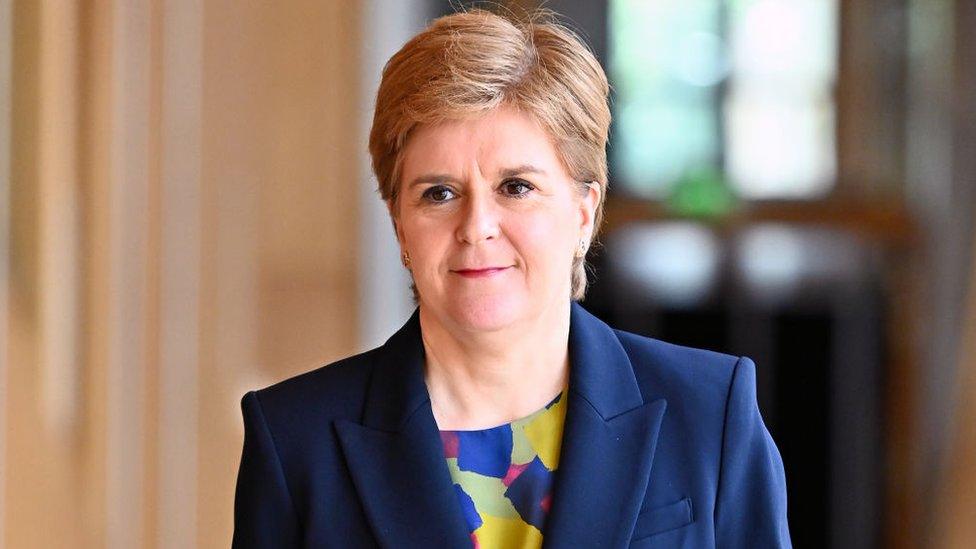
- Published7 September 2022
